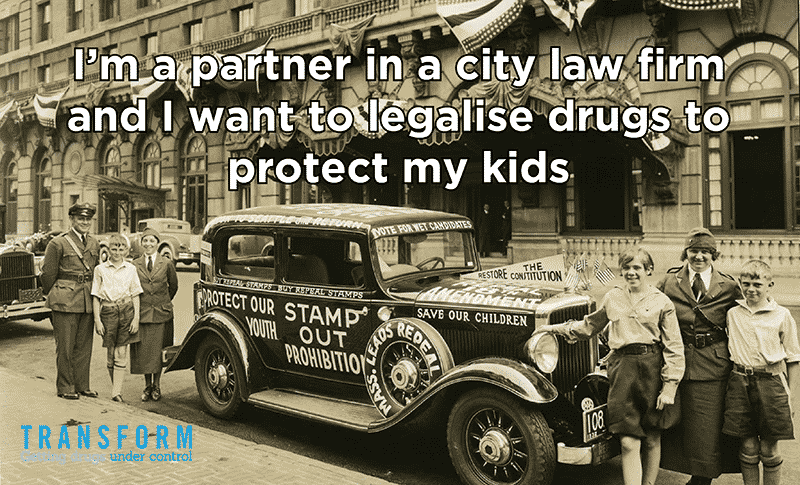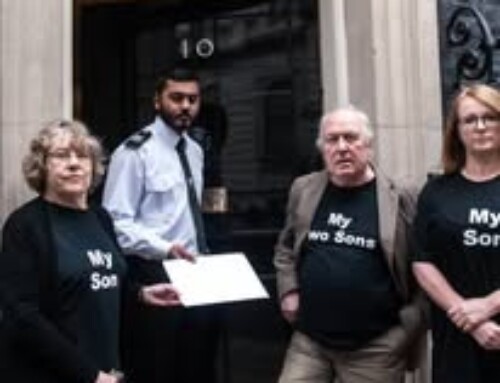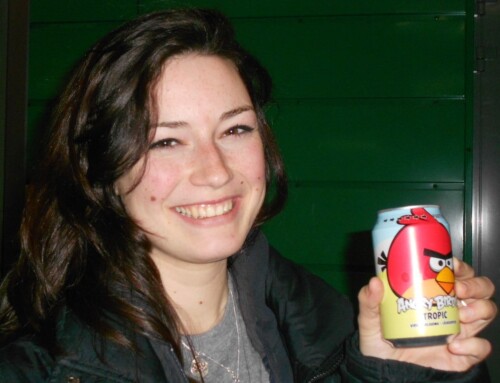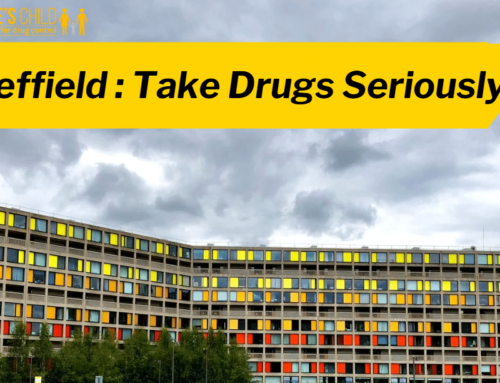This is a guest blog by Rosalind Connor originally posted on the Transform blog
Amongst my many Christmas traditions is forcing my sons (now sixteen and fourteen) to watch “Bugsy Malone” with me. Once you get over the questionable nature of pre-teen girls dressed in slinky dresses, it is a riot of fun, with guns replaced with custard pies and sophisticated cocktail waitresses serving orange squash.
It is through the film that I first explained to my sons the idea of prohibition, and the problems caused by “statement” laws. There is an old legal adage that “hard cases make bad law”, but what it really boils down to is that emotional, “something must be done” reactions have led to the worst laws – the expensive, impractical, unenforceable laws that don’t achieve anything but grief. I have spent my life as a solicitor (I am a partner at a law firm in the City of London) and “bad” law, particularly that promoted by slogans rather than thought, drives me insane.
Alcohol Prohibition was a classic example of this – the question is not whether drinking alcohol was bad, or out of control, but how it should be dealt with. The effect of prohibition is well-documented – it decreased respect for the law, and it increased the power of underworld gangs (and Al Capone was not a jovial, entertaining Fat Sam, he was a nasty, vicious thug). At best, it allowed the temperance movement to think they were doing something when they weren’t, rather like UK towns in the 1980s which declared themselves a “nuclear free zone”, (as if the USA and USSR cared), and at worst it encouraged alcohol usage, particularly amongst the young.
When it comes to illegal drugs, the same point arises. I have never taken any illegal drugs and, if I am honest, I don’t like the idea that people do so. Personally, I cannot see the attraction of taking drugs and have experienced (as most people have) how boring spaced out people can be. Like everybody, I would like to think I am not judgmental but I suspect that if I analyse my reactions, I realise that when I find out that someone I know uses drugs, they do fall in my estimation. In that sense, I probably think illegal drugs are “bad” and I definitely think the use of them is out of control, just as the prohibitionists felt about alcohol in the last century.
My general conclusion that illegal drugs are “bad” became much more acute when my children hit their teens and the issue of “out of control” usage became something that affected my children and their friends. The strength of modern cannabis frightens me, and I have heard too many horror stories to think it is “just a bit of fun” – my ideal is a world where my sons have no ability whatsoever to access cannabis, just as I want a world where all guns are the splurge guns from Bugsy Malone.
It is because of this that I want our drug laws changed. There is no point to a law that simply calls drugs “illegal” – all it does is take away the ability of government to control the supply, and puts a great deal of power and money in the hands of vicious criminals. Laws like this never work – it is no different in effect from Illinois passing a state law that Pluto (discovered by Clyde Tombaugh from Illinois) is still a planet. The state legislature in Illinois cannot pass a law that makes Pluto big enough to be a planet, and the UK Parliament cannot pass a law that stops people buying or selling drugs.
So much for the legal theory. Anecdotally, from speaking to my boys and other parents, I am amazed at how prevalent drugs have become amongst the young. All the children I know have access to drugs and I have witnessed one teenager, who I had known since he was an angelic child of seven, stoned out of what was left of his mind at four in the afternoon, weaving his way through traffic. Town and country, rich and poor, young and even younger, our children are all exposed to affordable illegal drugs, and parents who believe that this is not true are simply being lied to.
At the same time, I am surprised how little access kids have to alcohol. The kids who smuggled beer into school on the last day of term in my youth can’t do that now – which of course increases the demand for cannabis as a substitute. A few years ago, our society got worried about teenage alcohol use and clamped down hard on suppliers (with threats of loss of licences) to keep alcohol out of the hands of children. Obviously, this is something the government cannot do with illegal drugs, as they have no new threat to offer the drug suppliers, who are equally in trouble for selling to anyone of any age.
Our drug laws seem to have been put in place by politicians who want us to know that they think drugs are bad, as if the law exists purely for broadcasting their moral stance. Politicians must know this law doesn’t work, and perhaps some prefer a situation where they can make popular statements (“drugs will not be tolerated”) whilst blaming others (such as dealers), rather than one in which they take control and so can be held responsible.
However, 2018 is a new year, and I live in hope that politicians will be honest about what needs to be done and have the courage to do it. Perhaps they will realise, as the cast of Bugsy Malone does at the end of the greatest custard pie fight in the history of cinema, “you’re gonna be remembered for the things that you say and do.”
Rosalind Connor read philosophy, politics and economics at Oxford University before realising her calling lay with the law. She qualified as a solicitor in 1998 and is a partner in a law firm based in the City of London. Rosalind lives in Essex with her husband and two teenage sons.





Leave A Comment